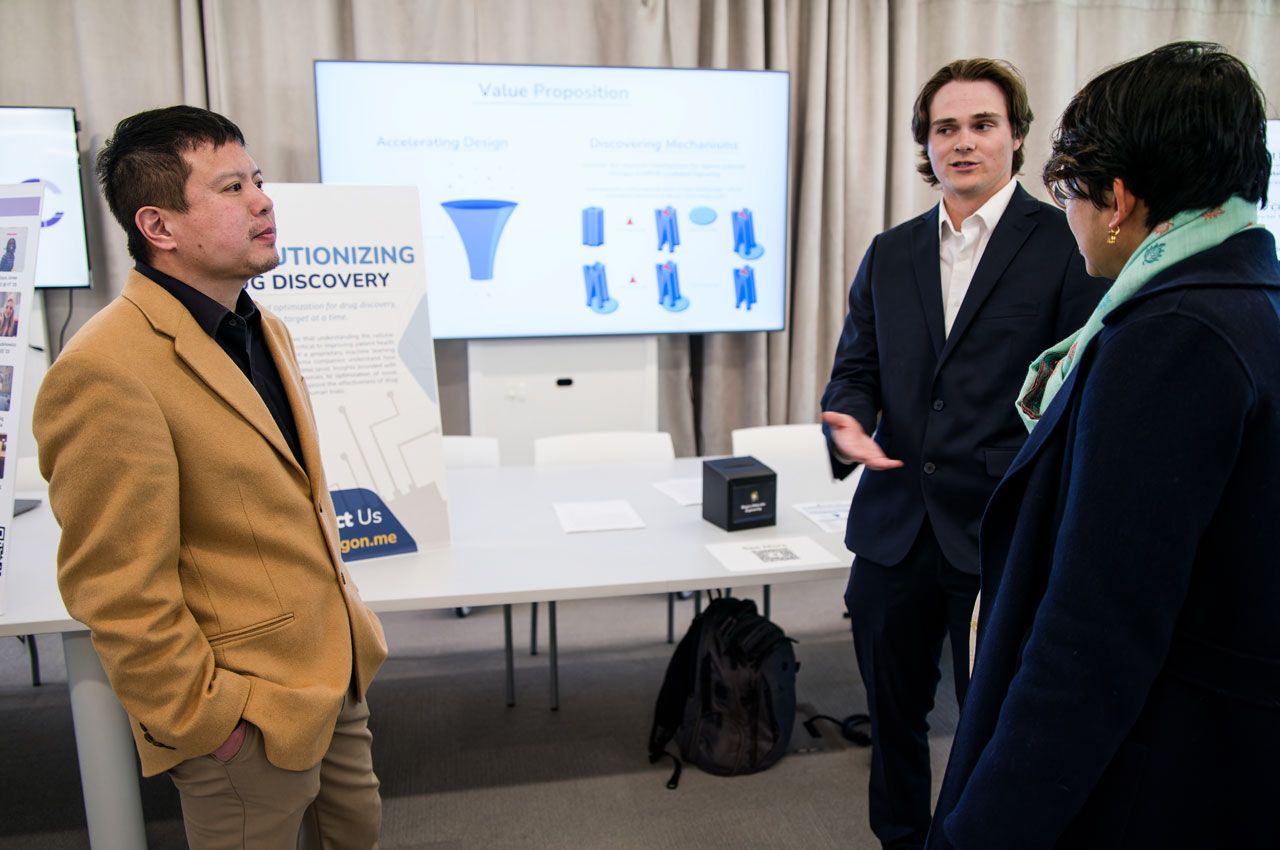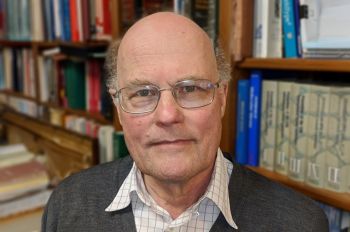Federal Award Funds Breakthrough Startup

When Illinois Institute of Technology recently received federal funding to help researchers move their projects from the lab to the marketplace, they wanted undergraduates to get involved in a big way. But they didn’t expect one to co-develop patent-pending technology that could safely speed up drug research, co-found and serve as CEO of a company to sell it, and start pitching dozens of clients across the country.
“To stay globally competitive in the innovation economy, we have a moral imperative to develop a pipeline of future innovators. One way to do that is to embed young people in our program. Given that the Kaplan Institute is the home of the IPRO [Interprofessional Projects] program, an innovation program that is a core requirement for all undergraduates at Illinois Tech, we are well positioned to connect the research enterprise to the undergraduate student body,” says Maryam Saleh, who as executive director of the Ed Kaplan Family Institute for Innovation and Tech Entrepreneurship is also the principal investigator of the United States National Science Foundation’s newly formed Accelerating Research Translation (ART) award at Illinois Tech.
The ART award helps researchers at institutes of higher education to significantly elevate the level of research translation for economic and society impacts by providing funding for “seed translational research projects.” The term “translation” refers to the process of “translating” research from the lab into the consumer marketplace.
"The Accelerating Research Translation program…identifies and champions institutions positioned to expand their research translation capacity by investing in activities essential to move results to practice," NSF Director Sethuraman Panchanathan said in a written release.
“Our program created opportunities for undergraduate students to join teams as interns and learn how to take research from lab to launch in courses, but we had originally intended for more experienced individuals to lead the translational efforts. We were pleasantly surprised to find that one of our first funded seed translational research projects would result in the formation of a startup that is also led by an undergraduate,” Saleh adds.
The project she’s talking about is led by undergraduate student David Cooper (Medicinal Chemistry ’24) and Associate Professor of Chemistry David Minh, who is also the Robert E. Frey Jr. Endowed Chair in Chemistry. Their company, Biagon, is one of the first to receive funding under the ART initiative at Illinois Tech.
“[Cooper and Minh] have assembled a more robust team and plan than our other applicants. I attribute this to their will and passion for translating the discovery to society, where it can have an impact,” Saleh says.
Biagon uses a machine learning algorithm, whose patent by Cooper and Minh is pending, to potentially help pharmaceutical and biotech companies develop safer drugs faster, with fewer side effects and shorter research runways. In essence, the algorithm can identify safer, effective drug compounds much faster than current drug research processes allow.
Many drugs target proteins called “G protein-coupled receptors,” which detect molecules outside an organism’s cells and trigger cellular responses.
“To know if a compound will have activity at the cellular level, you have to make the compound and test it in living cells,” says Cooper. “Our technology predicts what the activity at the cellular level will be. That saves researchers time and money. The technology also provides insight into how to design the compounds.”
The algorithm helps to predict which cellular pathways a drug will activate, and how much it will activate them. It thus addresses two quintessential challenges faced by pharmaceutical researchers—time and potential side effects—by identifying the pathways and drugs that are safer and more effective.
“If you target them without considering cellular pathways, you can get a lot of side effects, but if you design it with this process, you can avoid those side effects and create new classes of drugs to treat many diseases,” says Minh, who is Biagon’s chief scientific officer.
Adds Cooper, “We can go from a sea of compounds and help companies identify—much quicker than they can on their own—which compounds activate the pathways that they want.”
Cooper started working on the research when he took a course in Computational Biochemistry and Drug Design in fall 2022. After the course, he joined Minh’s Computational Chemical Biology Lab as a research assistant, and the breakthrough happened about a half year later.
Initially, the two simply wanted to publish their results. But after attending an American Chemical Society conference in summer 2023, Cooper had a “lightbulb moment” while watching pharmaceutical companies pitch their latest products and research.
“I realized they weren’t doing anything special, and we could help speed up that process,” Cooper says.
Adds Minh, “Since I’d been to many conferences, I already knew this process was new.”
They met with Saleh, who urged them to take the institute’s startup accelerator program, Startup Studio, as well as apply for funding through the ART initiative. They did both.
“[Saleh] has been very supportive and helpful with our application and helping us think about [Biagon] as a company, not only as an academic project,” Minh says.
The course required the two to develop a business plan and venture capital pitch as well as create a board for their company, which the two did with surprising speed, both through networking and by attending numerous conferences.
“They’re being very proactive, and to me it’s very impressive how they’re doing so far,” says Steve Ackerman, co-founder of Banta Pharmaceuticals, chief scientific officer of EnteroTrack, and a professor of biochemistry and molecular genetics at University of Illinois Chicago who the two met at the Chicago Biomedical Consortium.
After they met, Cooper followed up with Ackerman “and asked all kinds of interesting questions about the receptors we work on [at Banta Pharmaceuticals]. He impressed me with his questions, and when I heard he was an undergraduate, my jaw dropped. I don’t think I’ve ever seen an undergraduate with that level of engagement, understanding, commitment, excitement. He checked all the boxes; it’s kind of amazing, and that speaks to the approach Professor Minh takes and how he runs his laboratory.”
Ackerman agreed to be on Biagon’s board.
Initially Cooper had to juggle his coursework, his place on Illinois Tech’s varsity baseball team, and his position in the research lab.
But since graduating this summer and receiving the research translation grant in June 2024, “Officially I’ve been full-time [at Biagon] since the grant started. I don’t have any other priorities,” Cooper says. “We meet with three, four, five potential clients every week.”
Photo: Biagon CEO David Cooper, middle, and Chief Science Officer David Minh, left, pitch their startup's novel algorithm during the Kaplan Pitch Tank presentation in 2024.




